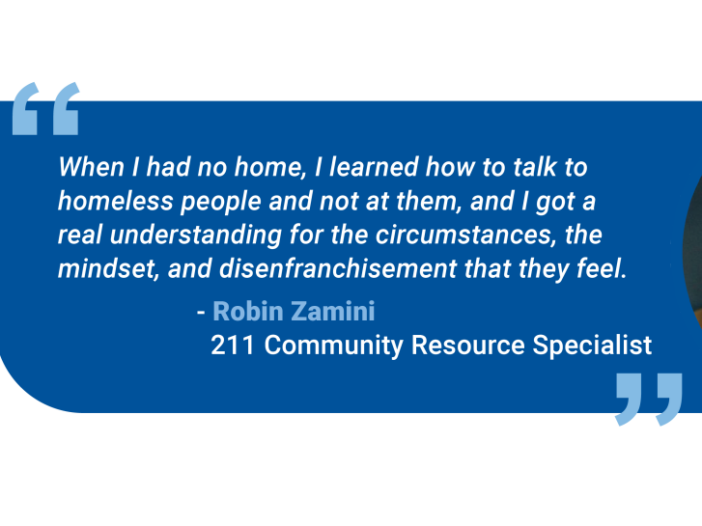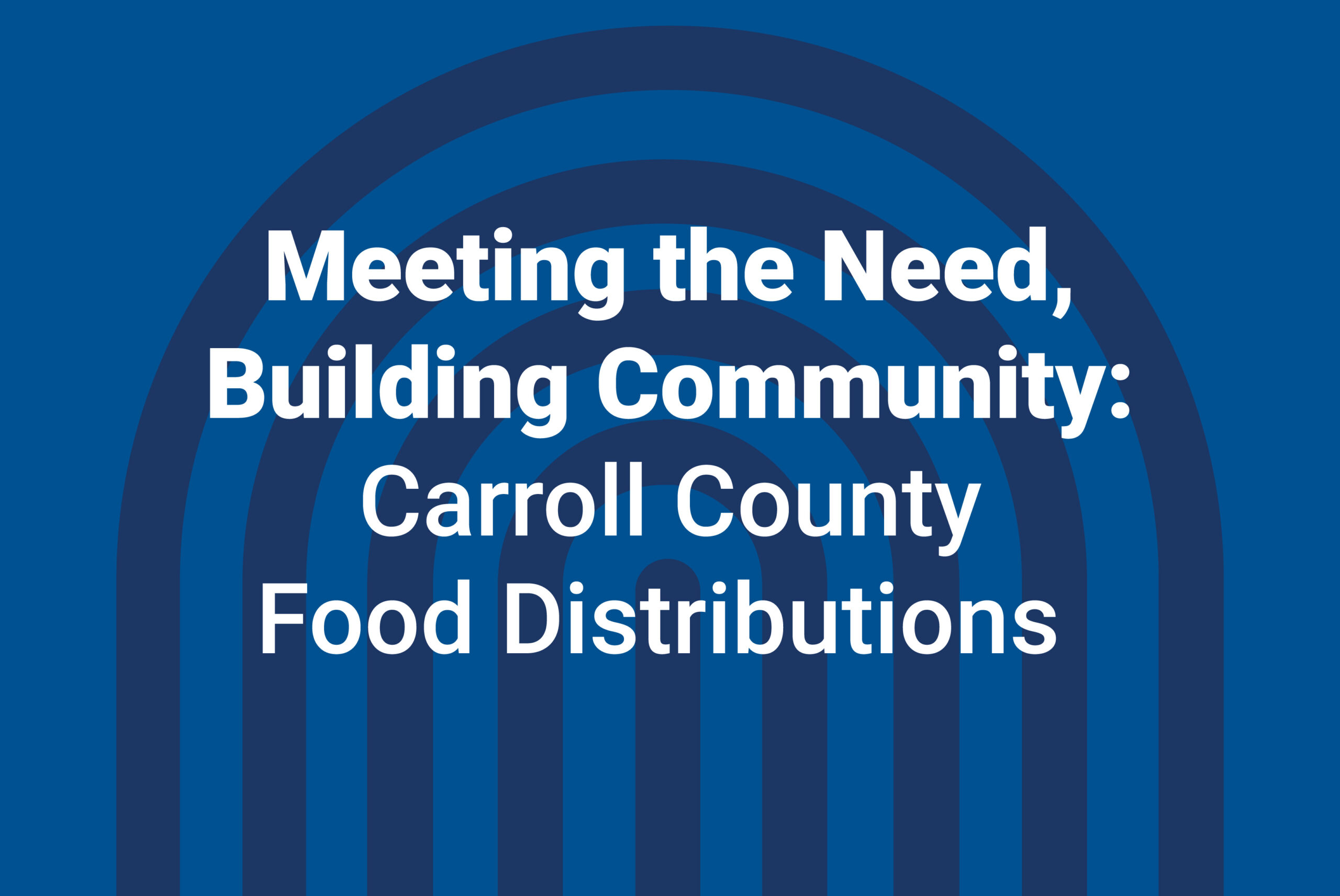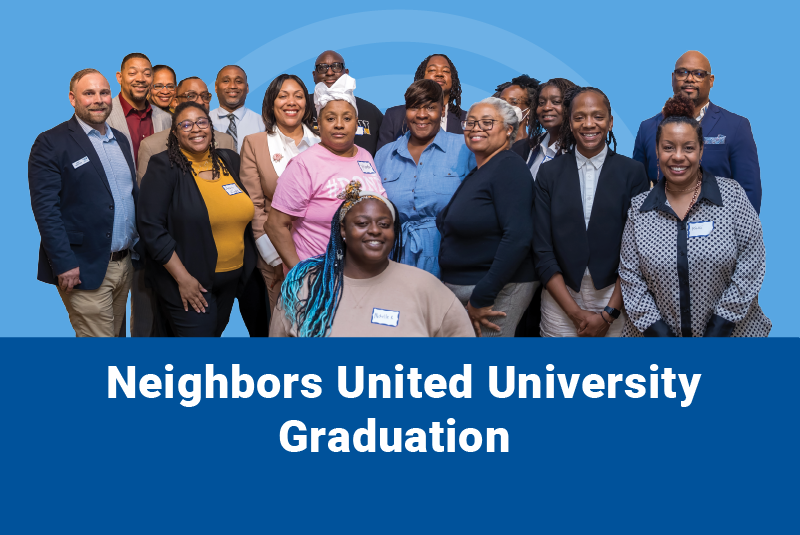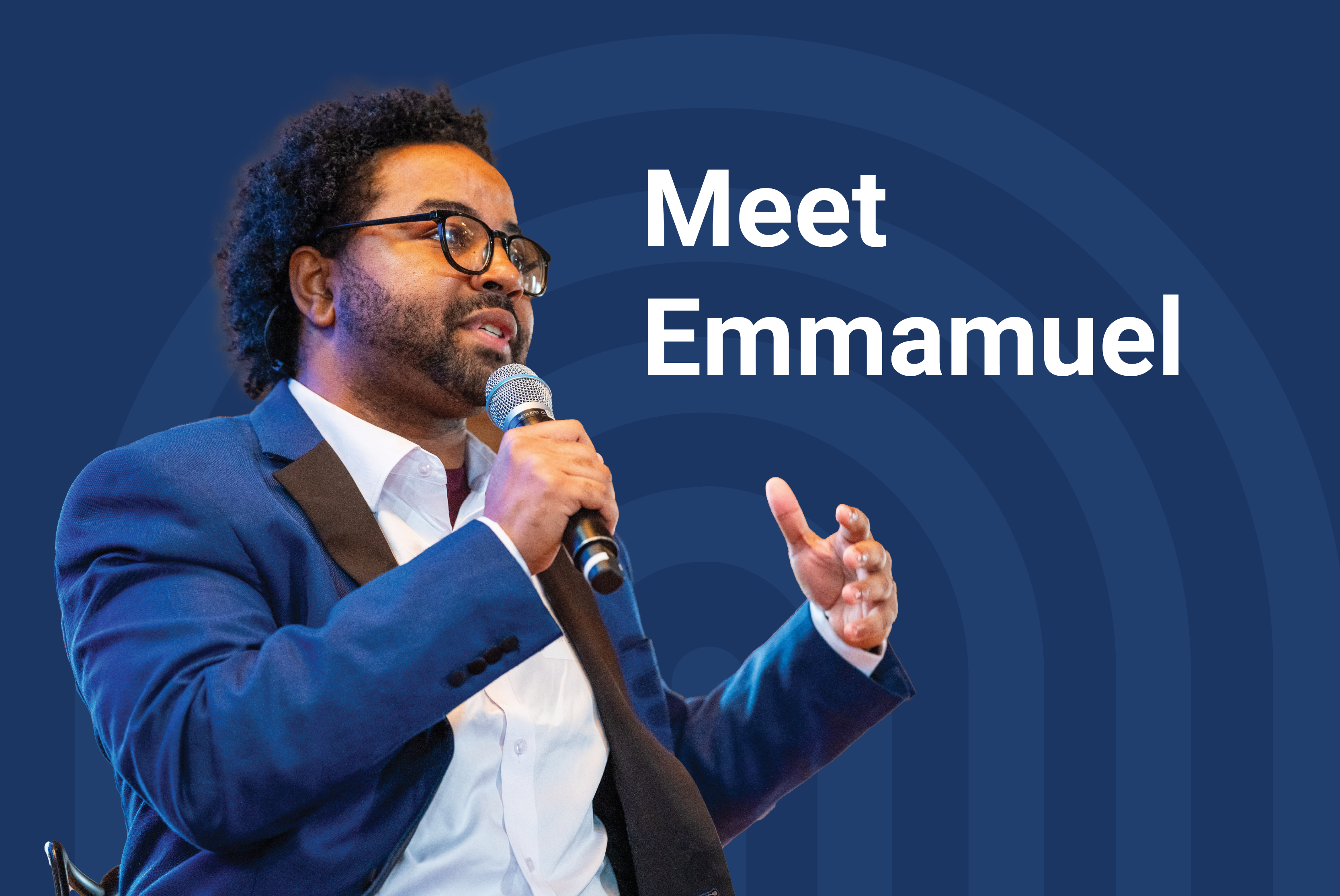
“While I was homeless, I learned how to talk to people and not at them. I got a real understanding for the circumstances, the mindset, and disenfranchisement that homeless people feel.”
In 2015, Robin Zamini was unhoused and couldn’t afford new eyeglasses. So, she went to United Way’s Project Homeless Connect event and got a free eye exam.
“When I went back to pick up my glasses, I bumped into United Way’s CEO, who asked if I needed anything else,” she says. “I told him I needed a job, and he told me to apply—so I did.” Robin started working in the 211 call center at 10 dollars an hour, 20 hours a week, taking requests for Thanksgiving meals. And she never left.
Robin’s story is unusual, but her circumstances aren’t unique. Her life experiences have made her one of United Way’s most valuable contributors. In addition to receiving 211 calls, she places follow-up calls to roughly 2,400 people a year to ensure they get what they need from 211: Calls about gas and electric bills often turn into conversations about a lost job, a cancer diagnosis, or the death of a spouse.
Robin soon learned many callers couldn’t take two hours off work for long bus rides to doctor appointments or had special dietary needs that weren’t being met with donated goods. So she connected some of the dots, initiating a partnership with Lyft through United Way Worldwide to offer free rides to those doctor appointments and suggesting holiday meals contain fewer canned goods and more fresh produce.
Robin’s lived experiences fuel United Way’s ability to meet the needs of the people we serve. “My background makes me challenge the way we do things every day,” Robin says. “I’m constantly thinking about how we could do better.”


